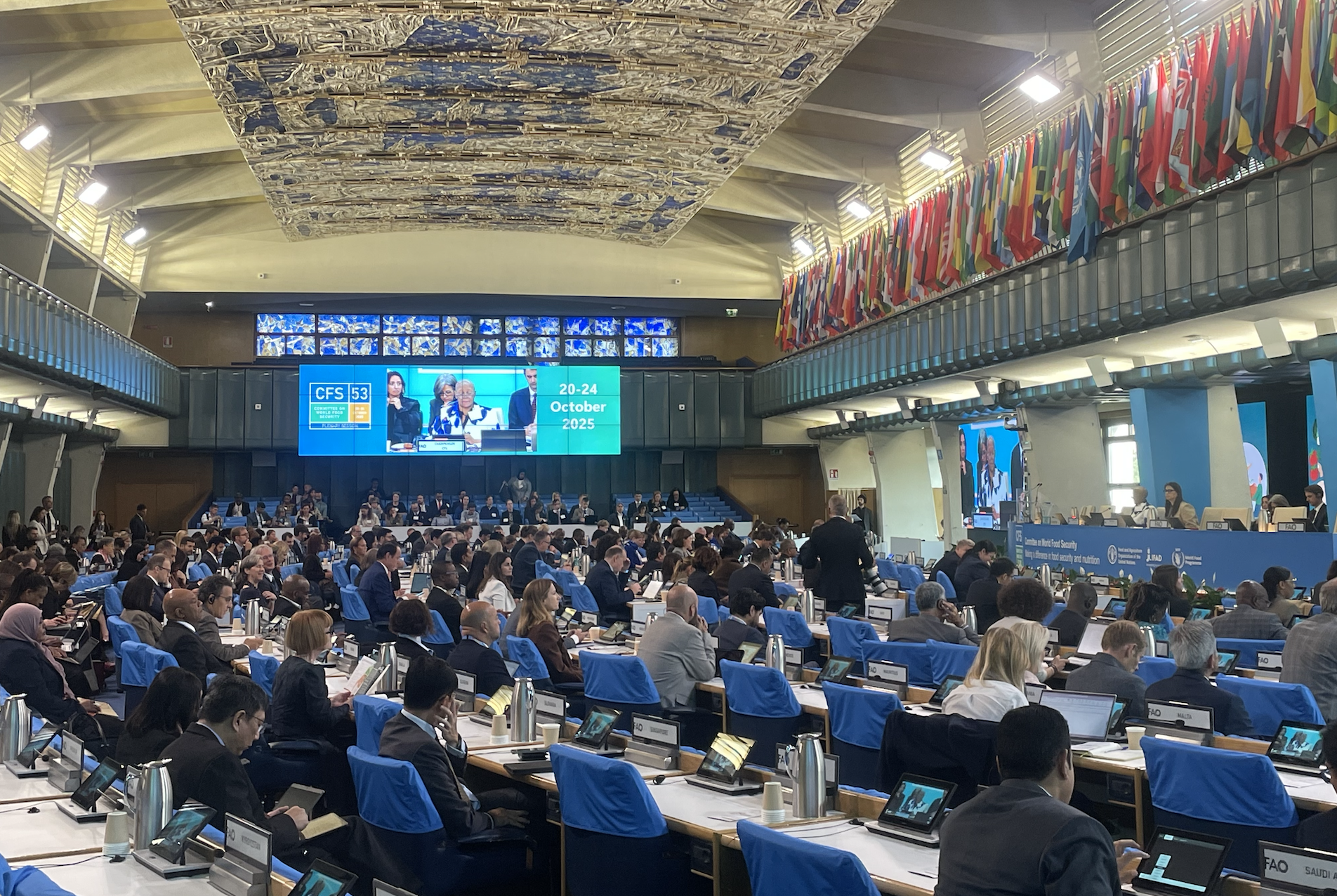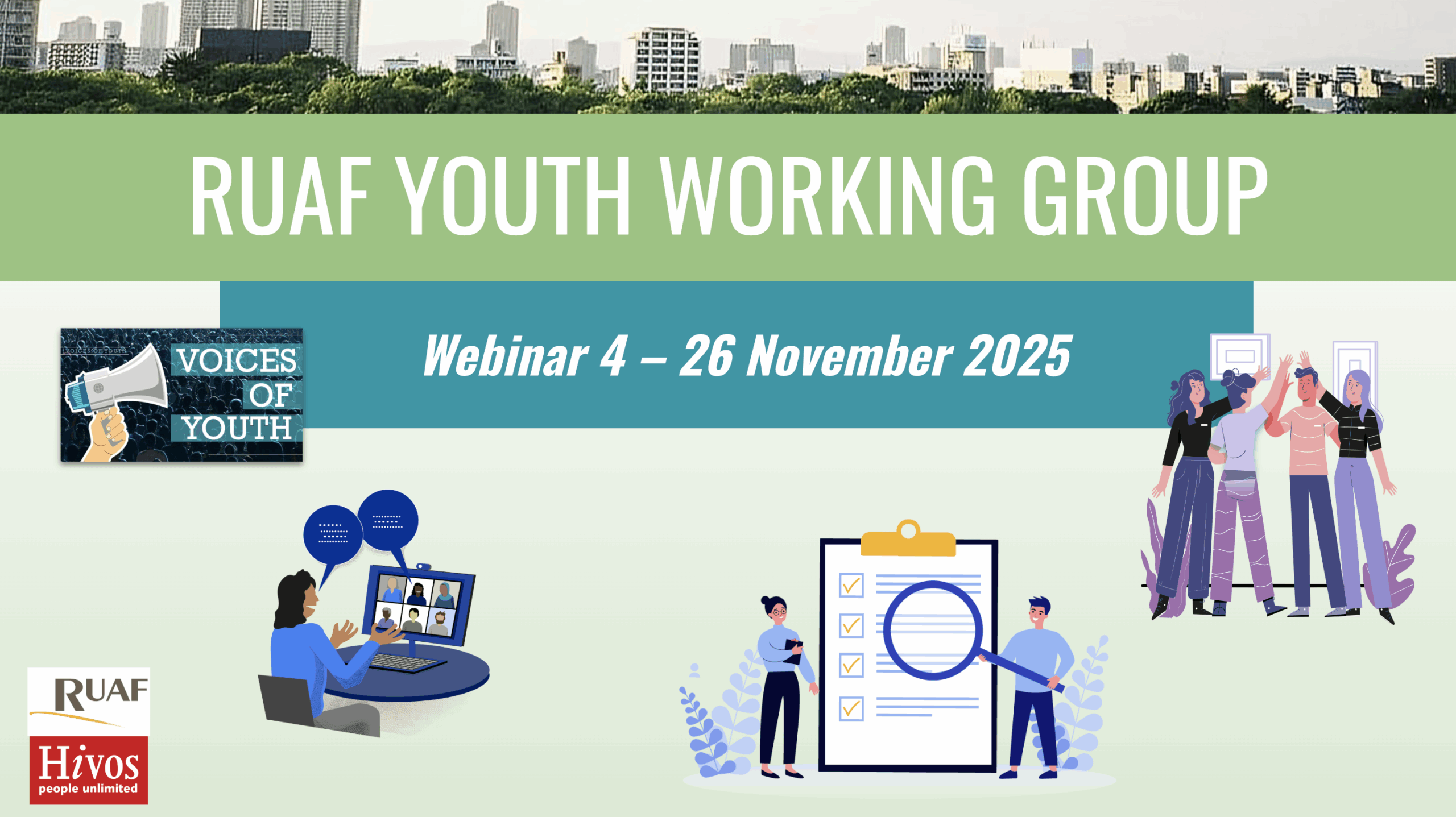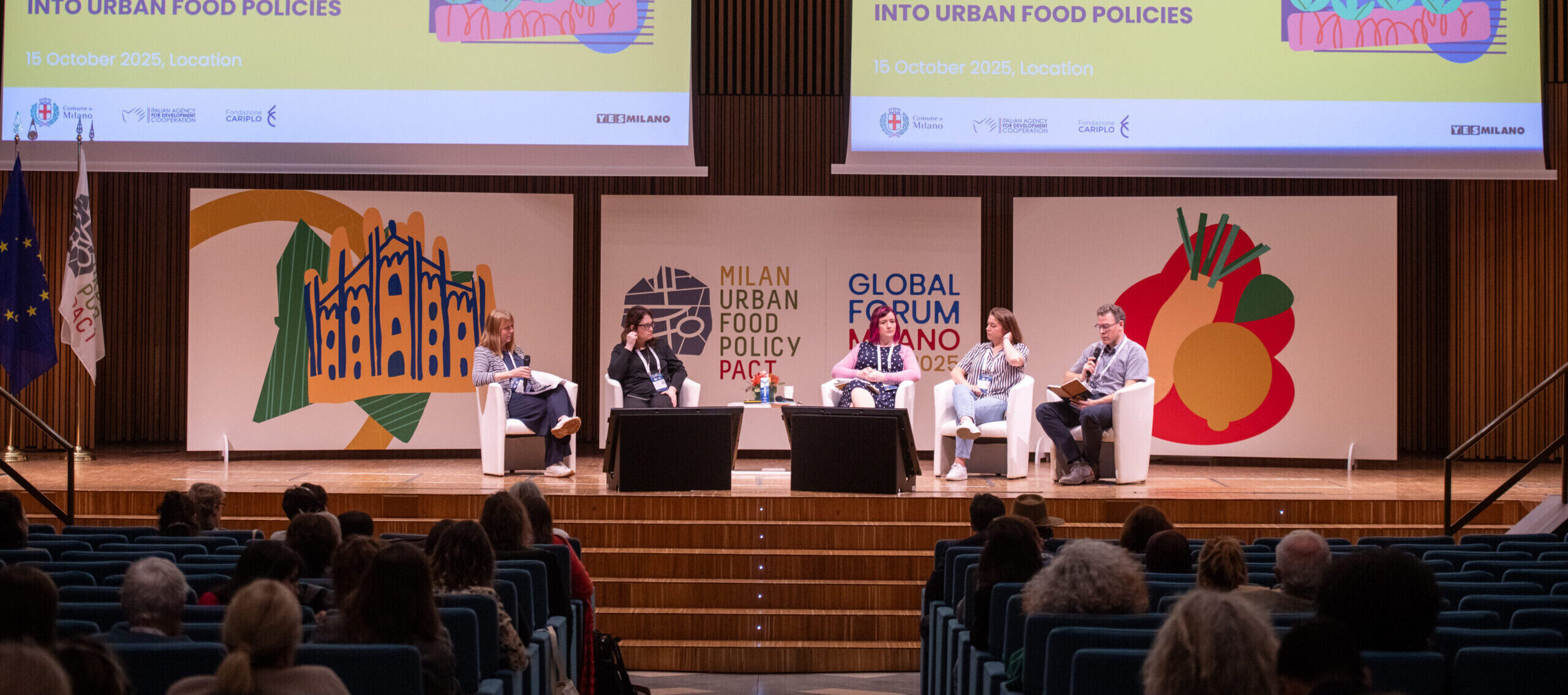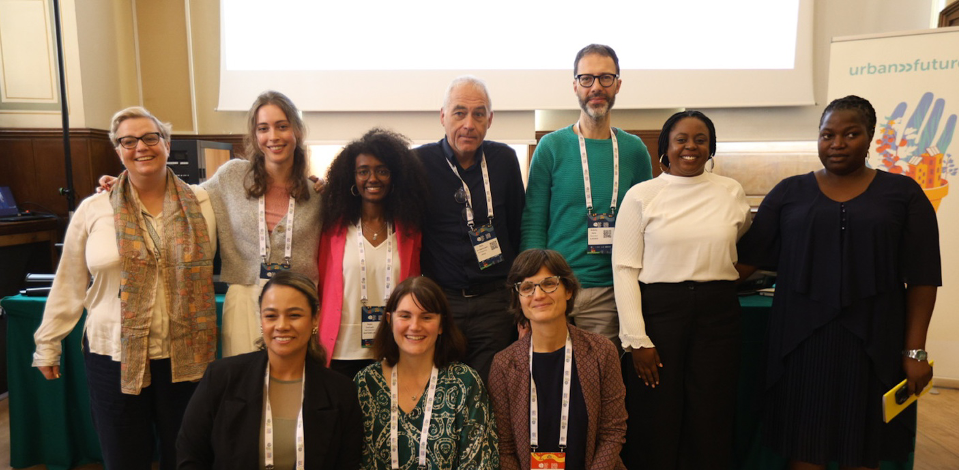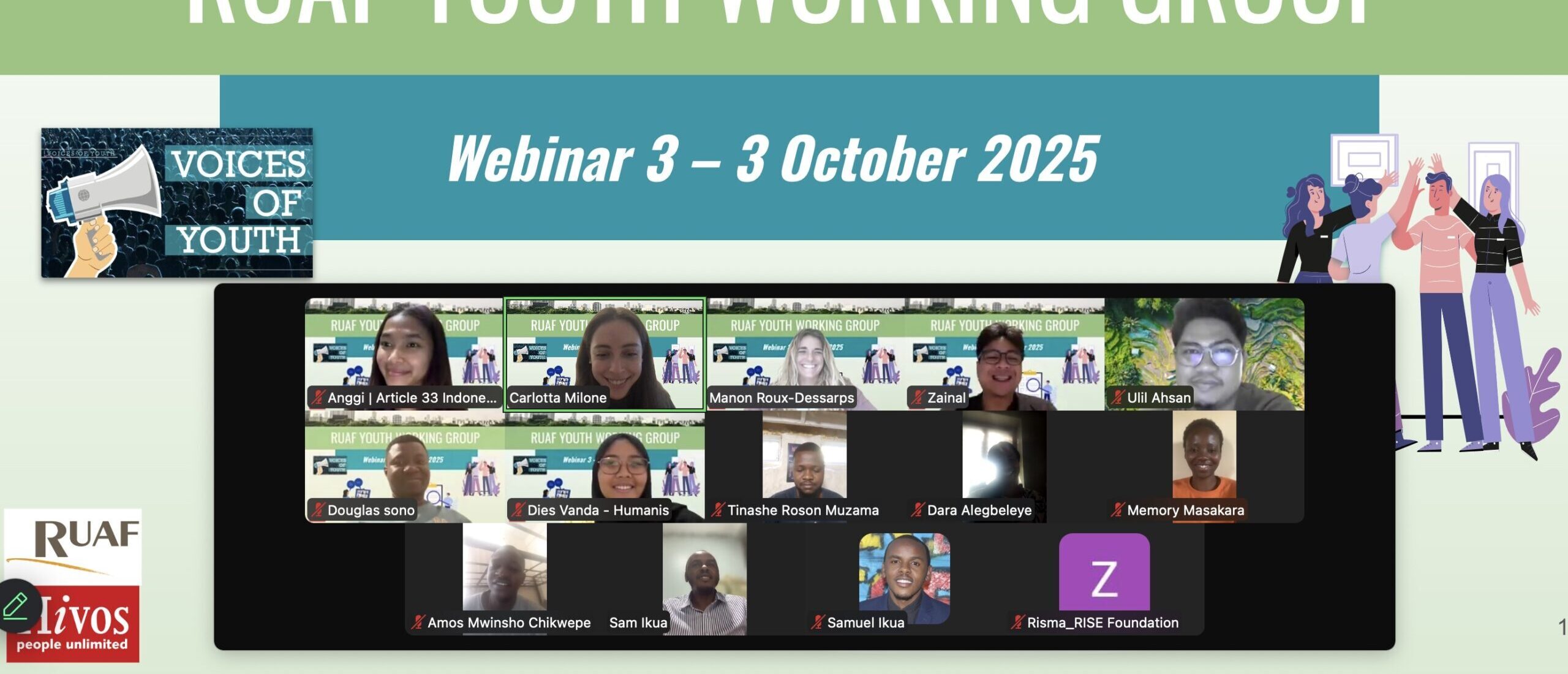By Carlotta Milone – Project and Communications Officer of RUAF, a global partner in the Urban Futures programme.
RUAF’s participation at the 2025 Civil Society and Indigenous Peoples’ Mechanism (CSIPM) and Committee on World Food Security (CFS) offered a valuable opportunity to link local realities with global debates on food systems transformation. For RUAF and the Urban Futures (UF) programme, it was a moment to reflect on how these global discussions connect to the project’s core themes – urban and peri-urban food systems, youth well-being and climate action – and on the opportunities for informing policy debates, strengthening advocacy and mobilizing resources to expand impact.
In October, I represented RUAF at the CSIPM Forum and the 53rd Plenary Session of the CFS in Rome. The week reaffirmed how essential it is to bridge the gap between global policy-making and the lived experiences of people in cities and territories to transform food systems. Collaboration, accountability and sustained mobilization are needed to ensure that the outcomes of international negotiations reach territories and become real, living practices.
Discussions throughout both gatherings repeatedly echoed the priorities of UF — centering urban and peri-urban systems, youth inclusion and urgent climate action. This reaffirmation of the importance of such work within global food systems debates brings several opportunities:
First, it demonstrates how global processes can be influenced by grounded, real-word practice. The leadership of cities and peri urban areas in accelerating food systems transformation served as a catalyst for support at the global level. By bringing local experiences –- like those emerging from UF – into global, regional and national arenas (including, but not limited to, the COPs and World Urban Forum), cities and their project partners can continue to shape global guidelines and policy frameworks and forge an enabling environment for their work.
Second, it creates momentum for scaling and adapting the work in practical ways. UF cities are living examples of how global commitments can be translated into effective local action. This offers other municipalities, partners and practitioners concrete models they can learn from and replicate – extending UF’s influence far beyond the project itself.
Third, it signals that now is a good moment for funders to dedicate resources to translate the global agenda into further on-the-ground action. For their part, projects such as UF – and the cities involved – have a stronger mandate for mobilizing resources to take the work to the next stage.
What are the CFS and CSIPM, and what happened this year?
The CFS is an intergovernmental body on food security, the secretariat of which is hosted by the Food and Agriculture Organization of the United Nations. It is billed as the most inclusive global platform on food security and nutrition; its inclusivity ensures the quality and legitimacy of its policy products. With a mandate to coordinate global efforts on right to food, the CFS functions as a “hub of hubs”, fostering coherence across institutions, promoting inclusive governance and connecting country-level lessons experiences and lessons.
The CSIPM is one of the key constituencies contributing to CFS discussions, ensuring that grassroots perspectives influence global policy debates and outcomes.
This year, after extensive preparation and negotiation, the CFS endorsed policy recommendations on strengthening urban and peri-urban food systems, recognizing cities as essential actors in achieving food security. The CSIPM Forum, held just before the Plenary week, provided a space for civil society, youth and Indigenous Peoples to refine these recommendations one last time and craft collective interventions. Their messages were clear: food must be treated not as a commodity, but as a human right.
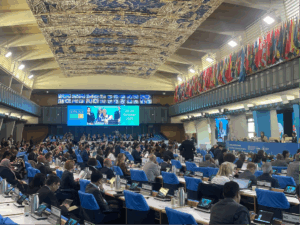
From places to people to planet: how CFS insights connect to the three pillars of Urban Futures
Urban food systems: from global policy to local action
The endorsement of the CFS Policy Recommendations on Urban and Peri-Urban Food Systems was the week’s most significant milestone — and directly reflects UF’s first pillar, focused on strengthening food systems in and around cities. It marks the first time the CFS has launched a dedicated workstream with policy guidance on urban and peri-urban food systems, formally recognizing the role of local and regional governments in the global food security agenda.
The CFS Plenary emphasized the need to translate global recommendations into actionable local mandates, encouraging coordination with frameworks such as the Milan Urban Food Policy Pact (MUFPP), which offers cities practical tools and indicators for implementation and monitoring. Participants also underlined the need to decentralize finance (channeling it down from national to municipal levels), protecting peri-urban land from urban sprawl, revisiting extractive rural–urban dynamics and learning from existing local successes that already demonstrate viable solutions but require greater visibility and investment to scale.
Across Latin America, Southern Africa and East Asia, the ten intermediary cities engaged in UF are already operationalizing many of these principles. Through multi-stakeholder collaboration, co-creation of city strategies, regular monitoring of progress and innovative financing mechanisms supporting young food entrepreneurs, they show how locally led action can effectively drive equitable and resilient food systems.
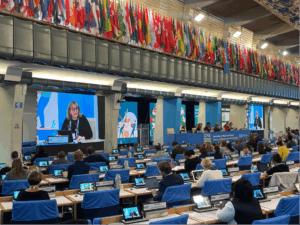
Food system inclusivity: empowering youth and women
The conversations at the CSIPM Forum and CFS Plenary also strongly reflected the youth well-being pillar of Urban Futures, emphasizing that no food systems transformation can be sustainable without the active participation of youth and women.
I had the opportunity of joining the CSIPM Youth Working Group, a space that closely mirrors RUAF’s own UF Youth Working Group (YWG). The discussions resonated with findings from the YWG’s latest webinar and Urban Futures projects on the ground, highlighting the need to ensure young people have access to production resources, financing and decision-making — and are recognized as equal partners, not token participants, in shaping food systems.
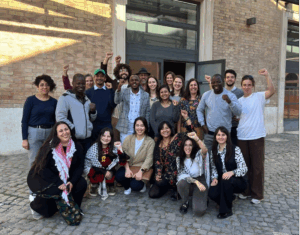
Youth inclusion featured prominently throughout the CFS sessions, linked to land access, climate justice and the need for intergenerational collaboration in decision-making spaces, among other topics. Gender equality was equally central. As highlighted by experiences from Kenya, food insecurity affects women first and hardest — as farmers, traders, and primary caregivers. Empowering women through supportive policies, secure seeds and land rights, access to capital and appropriate technologies not only improves livelihoods but also strengthens entire communities. Yet, persistent cultural norms and exclusionary laws present barriers, underscoring the need for both women and men to engage in redefining gender roles and advancing equality.
These priorities echo UF’s commitment to youth and women’s empowerment in cities and territories, supporting them as innovators and change agents who drive fairer and more resilient food systems.
Climate action: protecting the planet that feeds us
Discussions throughout the week also underscored UF’s third pillar, climate action, emphasizing that food, land and climate are inseparable. As one participant put it, “How can we have the right to food if the air, water, and soil are polluted?”.
Climate shocks, biodiversity loss and land degradation are undermining food security worldwide. Participants called for urgent shifts toward agroecology, renewable energy and protection of peri-urban ecosystems from urban sprawl.
Speakers also cautioned against exploitative practices such as carbon trading, which can displace Indigenous and local communities. Instead, they called for non-extractive, regenerative approaches that protect both ecosystems and livelihoods.
This alignment between global debates and UF’s on-the-ground work reinforces a key message: real climate action must be rooted in local territories, driven by those who depend most on the land, and designed for both ecological and social resilience.
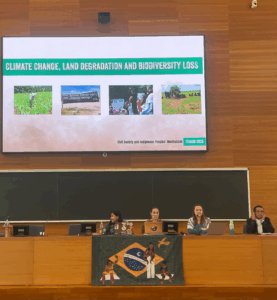
Looking ahead
As RUAF and the UF partners continue this journey towards food systems transformation, the insights from Rome highlight the opportunities ahead — to bring evidence from UF cities into global policy debates, to strengthen advocacy and mobilize resources at a moment when the world is actively seeking practical, urban-focused solutions, and to scale and adapt approaches that are already creating impact on the ground. Together, these opportunities deepen our collective capacity to shape food systems that are more inclusive, climate-responsive and equitable, delivering real benefits for communities and ecosystems alike.


